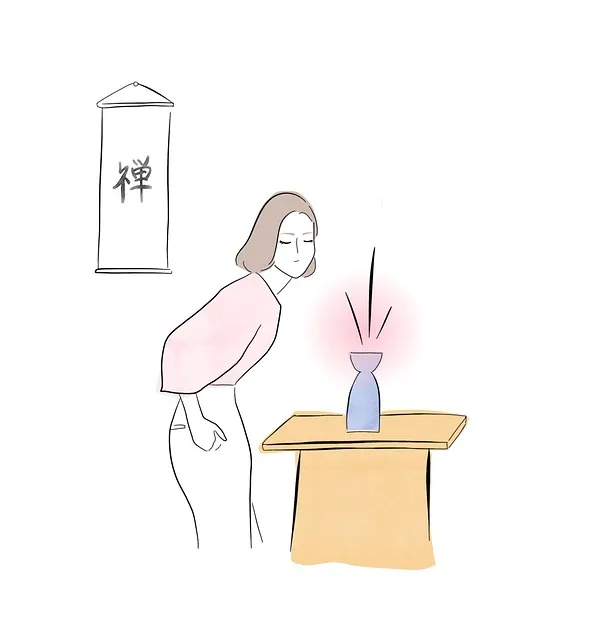The Kaiser Permanente mental health center in Highlands Ranch emphasizes cultural competence as a core element of patient care, creating an inclusive environment that respects diverse backgrounds. Through staff training, case studies, and expert interviews, they promote empathy-building strategies and crisis intervention guidance tailored to various cultures. This holistic approach integrates coping skills development and conflict resolution techniques, addressing root social and cultural causes of mental health issues, ultimately improving patient satisfaction and outcomes.
Cultural sensitivity is a cornerstone of quality mental healthcare, ensuring equitable access and positive outcomes for diverse patient populations. This article explores strategies for enhancing cultural competence in mental health services, drawing from the successful Kaiser Permanente model and practices at the Highlands Ranch Center. We discuss the importance of diversity, inclusion, and sensitivity education to improve patient experiences and outcomes in a rapidly changing society.
- Understanding Cultural Competence in Mental Healthcare
- The Kaiser Permanente Model: A Focus on Diversity and Inclusion
- Strategies for Building Culturally Sensitive Practices at the Highlands Ranch Center
- Enhancing Patient Outcomes through Cultural Sensitivity Education and Training
Understanding Cultural Competence in Mental Healthcare

In the diverse communities served by Kaiser Permanente mental health centers, such as Highlands Ranch, cultural competence is an indispensable aspect of effective patient care. It involves recognizing and appreciating the unique cultural backgrounds, values, and beliefs of individuals seeking mental wellness services. This understanding fosters a safe and inclusive environment where patients feel heard, respected, and supported. By integrating cultural sensitivity into practice, mental health professionals can ensure that interventions align with clients’ life experiences, promoting better engagement and outcomes.
The Mental Wellness Podcast Series Production often highlights the importance of cultural competence through real-life case studies and expert interviews. Empathy Building Strategies are a cornerstone in this approach, enabling practitioners to connect with patients from different walks of life. Moreover, Crisis Intervention Guidance tailored to diverse populations ensures that help is readily available and accessible, addressing unique challenges that may arise due to cultural barriers. These initiatives collectively contribute to the holistic improvement of mental healthcare services within Kaiser Permanente and similar institutions.
The Kaiser Permanente Model: A Focus on Diversity and Inclusion

The Kaiser Permanente Model, rooted in the diverse communities it serves, emphasizes a holistic approach to mental healthcare. With a strong focus on diversity and inclusion, Kaiser Permanente mental health centers like the one in Highlands Ranch strive to create safe spaces where individuals from all backgrounds can access personalized treatment. This model recognizes that cultural sensitivity is key to effective therapy, ensuring that services are tailored to meet the unique needs of each patient.
By incorporating diverse perspectives into their practices, these mental health centers aim to address not just symptoms but also the underlying social and cultural factors contributing to issues like depression prevention, stress reduction methods, and mindfulness meditation. This comprehensive strategy reflects a commitment to community well-being and fosters healthier, more resilient individuals within an inclusive environment.
Strategies for Building Culturally Sensitive Practices at the Highlands Ranch Center

At the Kaiser Permanente mental health center Highlands Ranch, building culturally sensitive practices is a core pillar of their mission. They employ diverse strategies to ensure every patient receives care tailored to their unique cultural background. One key approach involves training staff on various cultural competencies, including understanding ethnic and racial identities, familiarizing themselves with different belief systems, and learning effective communication techniques that bridge gaps in care.
Additionally, the center promotes Emotional Well-being Promotion Techniques that resonate across cultures, such as mindfulness practices and stress management strategies. They also offer Crisis Intervention Guidance adapted to address cultural nuances during times of crisis. By integrating these initiatives, the Kaiser Permanente mental health center Highlands Ranch strives to create an inclusive environment where Mental Health Awareness is fostered, and every patient feels heard, respected, and valued for their distinct cultural identity.
Enhancing Patient Outcomes through Cultural Sensitivity Education and Training

At the Kaiser Permanente mental health center in Highlands Ranch, recognizing and addressing cultural sensitivity is not just a priority but an integral part of enhancing patient outcomes. Through comprehensive Healthcare Provider Cultural Competency Training, staff are equipped with the knowledge and skills to navigate diverse cultural backgrounds, beliefs, and values. This training fosters an environment where patients feel understood and respected, encouraging open communication and trust. By integrating Coping Skills Development and Conflict Resolution Techniques tailored to different cultures, the center ensures that treatment plans are not only effective but also culturally responsive. This holistic approach allows mental health professionals to provide more personalized care, ultimately leading to improved patient satisfaction and positive outcomes.
Cultural sensitivity in mental healthcare is not just a best practice, but an essential component for improving patient outcomes at Kaiser Permanente mental health centers like the Highlands Ranch location. By adopting strategies that prioritize diversity and inclusion, such as those showcased in this article, healthcare providers can create environments where patients from various cultural backgrounds feel understood and supported. Continuous education and training empower professionals to navigate complex cultural nuances, ultimately fostering better communication and more effective treatment plans tailored to individual needs. This approach ensures that the Highlands Ranch Center continues to provide exceptional care, enhancing the well-being of its diverse patient population.






